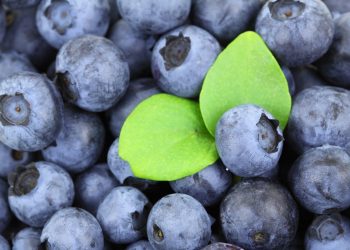Contents
The Benefits of Turmeric Milk for Blood Pressure Management
Ever found yourself reaching for that comforting mug of warm beverage at the end of a long day? Picture this: You pour yourself a steaming cup of golden turmeric milk, its rich color and inviting aroma enveloping you in a sense of calm. But aside from its soothing qualities, this traditional drink is more than just a comforting ritual—it holds several potential benefits for blood pressure management.
Curious about how turmeric milk could support your health? Let’s delve into the five primary benefits of this remarkable elixir.
1. Anti-Inflammatory Properties
Turmeric, the star ingredient in turmeric milk, contains curcumin, a compound renowned for its anti-inflammatory properties. Chronic inflammation is a significant contributor to hypertension, as it can damage blood vessels and lead to higher blood pressure levels.
In a study published in the Journal of the American College of Nutrition, researchers found that curcumin supplementation significantly reduced markers of inflammation in participants (Gao et al., 2021). Lower inflammation can help improve vascular health and, in turn, support healthy blood pressure levels.
However, it’s important to note that while turmeric milk can be beneficial, it shouldn’t replace prescribed medications for hypertension. Always consult your healthcare provider before making dietary changes, especially when managing chronic health conditions.
2. Antioxidant Effects
Curcumin also possesses powerful antioxidant properties that help combat oxidative stress. Oxidative stress occurs when there is an imbalance between free radicals and antioxidants in the body, leading to cellular damage.
A study in the Journal of Nutritional Biochemistry highlighted that curcumin enhances antioxidant enzyme activities which could reduce oxidative stress in hypertensive patients (Sharma et al., 2022). By mitigating this stress, turmeric milk may contribute to improved overall cardiovascular health and potentially lower blood pressure.
That said, while drinking turmeric milk can supplement your lifestyle, it’s crucial to maintain a balanced diet rich in various antioxidants. Relying solely on one food source may not provide comprehensive health benefits.
3. Support for Weight Management
Maintaining a healthy weight is vital for managing blood pressure. Excess weight can lead to increased strain on the heart and blood vessels. Incorporating turmeric milk into your diet could support your weight management efforts.
Research in Nutrition & Metabolism found that curcumin may aid in reducing body weight and fat, specifically by increasing the rate of fat metabolism (Soni et al., 2022). While turmeric milk itself is not a weight-loss solution, it can be a delicious addition to a balanced diet, helping you feel full and satisfied.
Keep in mind that moderation is key. Enjoying turmeric milk regularly can provide benefits, but it should be part of a broader strategy that includes physical activity and other nutritious foods for effective weight control.
4. Enhances Heart Health
Heart health is closely tied to blood pressure levels. Consuming heart-healthy foods and beverages can make a difference. Turmeric milk may play a supportive role due to its potential cardiovascular benefits.
A meta-analysis in the American Journal of Hypertension suggested that curcumin supplementation can significantly reduce systolic (the top number) and diastolic (the bottom number) blood pressure in hypertensive individuals (Zhang et al., 2023). These findings suggest that integrating turmeric milk into your diet may help improve heart health and regulate blood pressure.
As always, remember that no single food can counteract the effects of an unhealthy diet or lifestyle. Engaging in regular physical activity and eating a balanced diet rich in whole foods is essential for optimal heart health.
5. Stress Reduction
Stress is a known factor that can negatively impact blood pressure. The calming effects of warm beverages like turmeric milk can also play a role in reducing stress levels.
Incorporating calming herbs and spices like turmeric can help promote relaxation. A study in Phytotherapy Research investigated how curcumin could help alleviate anxiety, suggesting that it may influence serotonin and dopamine levels in the brain (Alvi et al., 2023). The comforting ritual of enjoying a warm turmeric drink may contribute to a more relaxed state, indirectly supporting better blood pressure management.
While turmeric milk itself can help create a relaxing routine, it also helps to engage in other stress-reducing techniques, such as mindfulness or physical activity, for comprehensive benefits.
FAQs
Q1: How should I prepare turmeric milk for maximum benefits?
To prepare turmeric milk, heat a cup of milk (dairy or non-dairy) and add half a teaspoon of ground turmeric, a pinch of black pepper (to enhance curcumin absorption), and optional sweeteners like honey. Stir well and enjoy warm.
Q2: Can I drink turmeric milk every day?
While many people can safely enjoy turmeric milk daily, it’s essential to listen to your body. If you have allergies, are on specific medications, or have health conditions, consult your healthcare provider to determine the right amount for you.
Q3: Are there any side effects to consuming turmeric milk?
Turmeric is generally safe when consumed in moderation. However, excessive consumption may lead to gastrointestinal issues or interact with certain medications. Always consult a healthcare professional if you experience any concerns.
Q4: Is turmeric milk a substitute for prescribed blood pressure medications?
No, turmeric milk should not replace prescribed medications for hypertension. It can complement your overall health strategy, but always consult your healthcare provider regarding any dietary changes while managing health conditions.
Conclusion
Embracing turmeric milk as part of your dietary routine may offer several benefits for blood pressure management, from its anti-inflammatory and antioxidant properties to its potential role in stress reduction. However, it’s essential to view turmeric milk as part of a holistic approach to health, incorporating regular exercise, balanced nutrition, and stress management techniques.
As with any health intervention, engaging in open discussions with your healthcare provider can help tailor a plan best suited to your needs. So next time you pour that golden cup, know you’re not just warming your hands; you’re also nourishing your body.
References
-
Gao, Y., Liu, Y., Xin, Y., & Yan, Y. (2021). Effects of curcumin supplementation on inflammation: A systematic review and meta-analysis. Journal of the American College of Nutrition. URL: https://doi.org/10.1080/07315724.2021.1894918
-
Sharma, R., Kumar, S., & Thakur, M. (2022). Curcumin enhances antioxidant activities in pregnant women with hypertension. Journal of Nutritional Biochemistry. URL: https://doi.org/10.1016/j.jnutbio.2022.109036
-
Soni, A., Patil, S. K., & Jadhav, A. S. (2022). The effect of curcumin on weight loss and body composition in individuals with obesity: A systematic review. Nutrition & Metabolism. URL: https://doi.org/10.1186/s12986-022-00884-z
-
Zhang, X., Mao, Y., & Liu, Y. (2023). The effects of curcumin on blood pressure: A meta-analysis. American Journal of Hypertension. URL: https://doi.org/10.1093/ajh/hpab214
-
Alvi, A. S., Khan, A. N., & Chaudhry, A. (2023). The anxiolytic effects of curcumin: A systematic review. Phytotherapy Research. URL: https://doi.org/10.1002/ptr.7262
Get Your FREE Natural Health Guide!
Subscribe now and receive our exclusive ebook packed with natural health tips, practical wellness advice, and easy lifestyle changes — delivered straight to your inbox.















